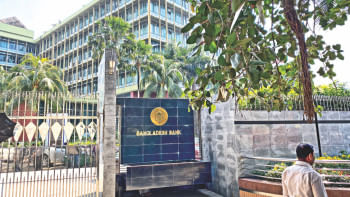Dhaka Global Dialogue: An innovative construct

The recently held Dhaka Global Dialogue, organised jointly by the Bangladesh Institute of International and Strategic Studies (BIISS) and the Indian independent think tank Observer Research Foundation (ORF) was an innovative exercise for pursuing interactive, participatory and broad-based public diplomacy. The Dhaka based Australian and the British High Commissions were also actively involved. It created an opportunity for policymakers from Bangladesh and India as well as representatives and practitioners from a wide-range of disciplines, to interact freely amongst themselves and with the attendant audience, share their experiences and offer possible solutions on issues that impact both their societies. The candid, objective and open manner of the deliberations enriched the proceedings.
The event was inaugurated on November 11 by the prime minister, thereby giving the process a strong seal of political endorsement from the Bangladesh government. The presence of Mr Ram Madhav Varanasi, National Secretary General of the ruling Bharatiya Janata Party of India, and of Mr Manish Tewari of the Indian National Congress Party, as panellists, signalled the bipartisan support of the Indian political establishment to the process. Speaker of the Bangladesh Parliament Shireen Sharmin Chaudhary's keynote address on the second day focused on the role of parliamentary diplomacy in strengthening people to people relationship among countries. A host of cabinet ministers and parliamentarians from Bangladesh, including the foreign minister, took part at various sessions, deliberated substantively on their respective subjects, talked of the challenges ahead and answered questions from other panellists and from the participating audience.
Although the principal participants were from Bangladesh and India, the canvass of discussion covered a much broader space. Issues of major geo-political importance like the US-India-Japan backed Indo-Pacific Strategy and the China sponsored Belt-Road Initiative and their broader implications were discussed at length among politicians and diplomats, as were issues that present clear and imminent danger like climate change, violent extremism, hate crimes and migration. Social issues like health, the importance of renewable energy, the opportunities and challenges of a digital world also found prominent space. Discussions on the role of culture and commerce in the clothing industry added to the diversity of the discourse. Women's role in politics and policymaking were deliberated extensively with participants from diverse parts of the world like Bangladesh, India, Afghanistan, Argentina and Brazil, among others.
The multifarious angles of the Indo-Pacific regime and its geo-politics, however, was the dominant theme of the exercise, taking up as many as six panel discussions.
The Dhaka Global Dialogue, the first of its kind, was rounded up with a substantive panel discussion captioned, "Convergence of Regional Initiatives for Optimising Common Benefits". This is of critical importance for a country like Bangladesh, placed as it is in a sensitive geo-political region.
Geographically, Bangladesh sits on the top of the Bay of Bengal and shares its maritime and land boundaries with India and Myanmar. It is the coupling in the chain that connects South and South East Asia and is linked through the Bay of Bengal to the Indian, and by extension, the Pacific Oceans. It is this very location that gives Bangladesh its geo-political relevance. This also poses a challenge for Bangladesh as it strives to position itself in this evolving geo-political scenario and aims to preserve and protect her national interests while maintaining healthy relationships with key countries.
On its part, Bangladesh has much to offer, beginning with the fact that it is on the verge of graduating to a middle-income country. The country has recorded enviable and consistent economic growth in recent times. The middle class is among the largest in the region and growing. Bangladesh can rightfully boast of having a secularised society with a positive track record of girl's education and women's empowerment. In the area of foreign policy, Bangladesh believes in the principle of using diplomacy as the primary tool for promoting its national interests and for resolution of disputes. It has been a strong advocate of mutually beneficial bilateral, regional and trans-regional relationships. Its commitment to combatting the threats posed by climate change and global warming has been consistent. Bangladesh's policy of zero tolerance on extremism and terrorism has been amply demonstrated. Bangladesh has a sizeable military that is professional, disciplined and has developed a global character. It is widely respected for its disaster management capabilities and for keeping peace under the United Nations in far off lands. More recently, Bangladesh has earned universal accolades for providing shelter to more than a million Rohingya refugees fleeing extreme persecution in Myanmar. In sum, Bangladesh has earned recognition as a responsible neighbour and an important regional player.
It is in this context that the Dhaka Global Dialogue has assumed special significance for Bangladesh. The initial exercise was a major success. It had all the ingredients for becoming an annual event that could have a wider participation. Having a full panel discussion on the role of the media, for instance, would give it added dimension. Involvement of the newer generation in the exercise gave the three-day event greater traction. Scope should however be created to enable enhanced interactive participation for the audience and not restrict them to asking cryptic questions. The new generation are curious, they have an opinion about their future and would welcome the opportunity to share them unhindered.
Shamsher M Chowdhury, BB is a former Foreign Secretary of Bangladesh.


 For all latest news, follow The Daily Star's Google News channel.
For all latest news, follow The Daily Star's Google News channel. 



Comments